choices

Kamaruka - pages 26 & 27
Montague School - pages 34 & 35

Rossbourne School - pages 48 & 49
Mecwacare - pages 72 & 73

Melbourne Youth Chorale - pages 70 & 71
Windermere Family Services - pages 80, 81 & back cover
Schools with Deaf Facilities:


Deaf Education Centre Mount Erin College - pages 36 & 37
Yarra Valley Grammar - pages 58 & 59




For further information refer to pages, 2, 3, 18 & 19

Issue 19 • 2023 Is I su u e 9 2 02 2 3
Photo provided with the compliments of Emerson School


Choices 2 12619639-FC33-23
























































12622085-FC33-23
The importance of special schools
INCLUSIVE education is a fundamental right that ensures equitable opportunities for all students, including those with special needs. Schools dedicated to supporting and nurturing students with special needs play a critical role in promoting their holistic development and enabling them to reach their full potential. The following discusses the importance of maintaining and developing schools for students with special needs, emphasizing the benefits for individual students, the broader community, and society as a whole.
Equal Access to Education
Maintaining and developing schools for students with special needs is essential for ensuring equal access to education. These schools provide tailored learning environments and specialized support systems that cater to the unique needs of students with disabilities. By having dedicated facilities and resources, students with special needs are provided with the opportunity to learn and grow alongside their peers, promoting inclusivity and reducing educational disparities.
Individualised Support and Personalised Learning
Schools for students with special needs offer individualised support and personalised learning plans, which are crucial for addressing diverse learning styles and abilities. Specialized teachers, therapists, and support staff are trained to
understand and cater to the specific needs of each student. This personalised approach fosters a positive learning experience, enhances academic progress, and supports the development of essential life skills, promoting independence and self-confidence.
Social and Emotional Development

Maintaining and developing schools for students with special needs facilitates social and emotional development in a nurturing and accepting environment. These schools foster a sense of belonging, where students can interact with peers who share similar experiences and challenges. By promoting positive social interactions, teamwork, and cooperation, students with special needs develop essential social skills, emotional resilience, and self-esteem, which are critical for their overall well-being.
Parental Engagement and Support
Schools for students with special needs foster strong partnerships between educators and parents. These schools provide a supportive network where parents can collaborate with teachers, therapists, and specialists to develop individualised education plans, set goals, and monitor progress. Parental engagement ensures continuity and consistency between home and school environments, enhancing the effectiveness of support and interventions for students.
Continued on page 6
Choices 4
INCLUSIVE, COLLABORATIVE, AND NURTURING
Andale is an independent primary school that provides individual learning support for children experiencing learning difficulties.

Andale School provides an inclusive, collaborative, and nurturing learning environment in which every child can be themselves –extraordinary.
With small class sizes, highly skilled teaching staff, and integrated professional support from an Educational Psychologist, Speech Therapist and Occupational Therapist, Andale is unique in the Melbourne education landscape.


We strongly believe that learning difficulties should not be a barrier to achieving potential. By providing an inclusive school environment that nurtures individual strengths, our exceptional children will have the very best chance at social and educational success.
Please contact the school on 9853 3911 to learn more.
www.andale.vic.edu.au
andaleschool@andale.vic.edu.au
Choices 5
12606421-MS33-23
Continued from page 4
Community Integration and Awareness
Maintaining and developing schools for students with special needs contribute to the broader community by promoting inclusion and raising awareness about disabilities. These schools provide opportunities for students without disabilities to interact and develop friendships with their peers who have special needs. This fosters empathy, understanding, and acceptance, breaking down barriers and promoting a more inclusive society.

Potential for Future Success
Schools for students with special needs play a crucial role in preparing students for future success. By providing a comprehensive education that focuses on academic, vocational, and life skills, these schools equip students with the tools they need to lead fulfilling lives as active and engaged members of society. The skills and support gained in these schools can pave the way for further education, employment opportunities, and independent living for students with special needs.
Maintaining and developing schools for students with special needs is of utmost importance for ensuring equal access to quality education and promoting inclusive communities. These schools
provide individualised support, personalised learning, and a nurturing environment that fosters social, emotional, and academic development. They also facilitate parental engagement and promote community integration, fostering empathy, understanding, and acceptance. By investing in schools for students with special needs, we empower these individuals to thrive, contribute, and achieve their full potential, thereby creating a more inclusive and equitable society for all.
Choices 6
By providing a comprehensive education that focuses on academic, vocational, and life skills, these schools equip students with the tools they need to lead fulfilling lives as active and engaged members of society.”
Ascot Vale Heights is a Prep -Year 12 inner city school where every student, every day is given the opportunity to be the best they can be.
We provide quality education programs which are delivered through the Victorian Curriculum.

• Integrated inquiry learning across the Victorian Curriculum
• Individual Learning Plans for all students

• 1:1 iPad program across school
• Occupational Therapy & Speech Therapy

• Mental Health Practitioner
• Respectful Relationships
• Learn to Play Program
• Zones of Regulation
Specialist programs include:

• Stephanie Alexander Kitchen Garden Program
• Post School Transition Program
• Intensive Swimming Program
• Perceptual Motor Program
• Personal Capabilities
• Incursions/Excursions
• Overnight Camps
• Work Experience
• Bike Education
• Sensory Room
• Visual Arts
• Music
• PE
Choices 7
1 Tasma Street, Ascot Vale VIC 3032 Enrolment Enquiries 03 9370 8906 www.ascotvalehs.vic.edu.au ascot.vale.heights.sch@education.vic.gov.au Year 11 & 12 access VPC, ASDAN & VET programs 12607920-JC33-22




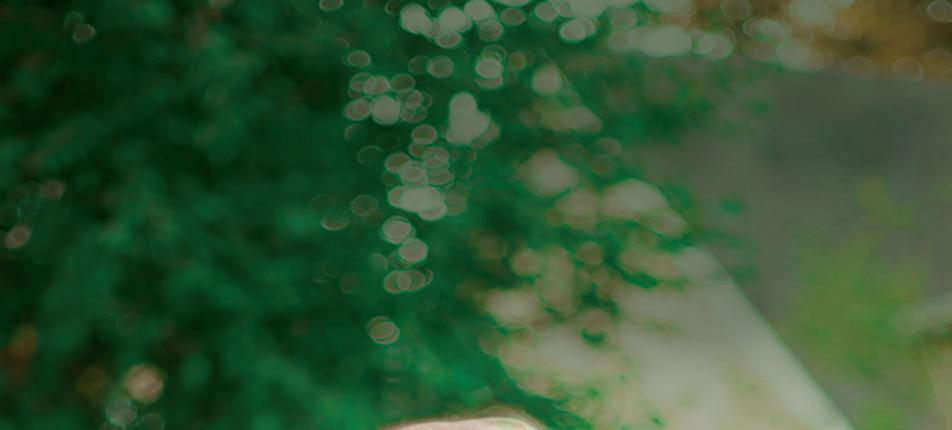




Aurora School Early Intervention and Early Education for Children who
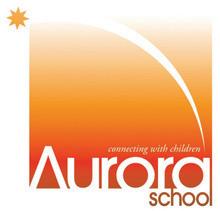
are Deaf and Deafblind
AURORA SCHOOL
Language Rich Bilingual Environment
Aurora School is a Department of Education School which provides optimal learning environments for young children who are deaf and deafblind and their families across the State of Victoria.

Communication, Language and Literacy form the foundation of our bilingual (English and Auslan) programs that support each child’s whole development.
Early Intervention programs are available to families of children, living throughout Victoria, aged from birth until school entry who have a confirmed bilateral hearing loss. The staff work in partnership with families providing regular home based and group sessions.

Early Education programs are available for children from three years of age who have a confirmed moderate to profound bilateral hearing loss. Early Education focuses on a play based, developmental pathway with particular emphasis on the effective use of speech, language and communication. We provide a warm and encouraging environment that fosters the development of all students according to individual needs and abilities.
Aurora School has an inclusive 3 and 4 year old Community Kindergarten which offers a rich positive environment for children enrolled in the Aurora School Early Education program and for local community children. Programs offer English and Auslan, and are based on the Victorian Early Years Learning and Development Framework.
Communication for Life Long Learning
• Statewide Early Intervention
• 3 year old, 4 year old and Foundation
Early Education
• Individualised programs for Deaf and Deafblind Children
• Inclusive 3 year old and 4 year old Community Kindergarten
Choices 9
For further information please contact us on Ph: (03) 8878 9878 Email: aurora.sch@education.vic.gov.au | Website: www.auroraschool.vic.edu.au 12610423-ET33-23










Choices 11 Bayside Special Developmental School 4 Genoa Street Moorabbin 3189 Phone : 03 9555 4155 | Website: www.baysidesds.vic.edu.au
bayside.sds@education.vic.gov.au OUR VISION
12504502-SN31-21
To maximise educational opportunities, engagement and enrichment for students with moderate to severe intellectual disabilities in a safe, welcoming and fun environment. Bayside Special Developmental School
Bulleen Heights School
BULLEEN Heights School is a specialised school for students with Autism Spectrum Disorder aged from 5-18 years. The school is located in the North-Eastern suburbs of Melbourne and operates across two campuses – Pleasant Road (primary) and Manningham Road (secondary).
The Victorian Curriculum provides a framework for planning whole-school curriculum. Our exemplary teaching and learning programs are designed to individualised learning plans. Program delivery using Applied Behaviour Analysis teaching techniques is available in the lower primary years and is implemented by a team of trained ABA therapists in partnership with teachers.
The Victorian Pathways Certificate (VPC) is a hands-on option for students in years 11 and 12 and delivered at both foundation and intermediate levels. VPC gives practical work-related experience, as well as literacy and numeracy skills and the opportunity to build skills that are important for life and work.

The provision of a structured, predictable and secure environment contributes to the achievement of both immediate and long term goals, in the belief that all students can learn and achieve success. Strategic plans support the development of 21st Century skills with a focus on
STEAM, digital technology, and innovative practices designed to enhance student learning across all areas of the curriculum.
Specialist teaching areas include STEAM, Visual Arts and Physical Education. Extra curricula programs supporting student learning include camps and excursions, community access and swimming. After school care is available to eligible students.
Our team of teachers and education support staff are supported by a multi-disciplinary team, including a psychologist, speech therapists and occupational therapists. Working in a positive behaviour support environment, our team provides a holistic approach to diverse and individual needs.
Choices 12
Our team of teachers and education support staff are supported by a multidisciplinary team including a psychologist, speech therapists and occupational therapists.
• As an Autism specific school, our aim is to provide personalised learning embedded in a rich academic, social and physical curriculum enabling students to reach their potential and to become contributing members of society.








• We offer excellent educational programs, based on the Victorian Curriculum designed to develop individual skills and strengths within a structured and secure environment.







• Our multi-disciplinary approach to learning and teaching provides a safe environment where consistency is valued and motivated staff engage, instruct and assess students to achieve individual goals.

Primary Campus
49-61 Pleasant Road, Bulleen Vic 3105
Phone: 9850 7122








Website: www.bulleenheights.vic.gov.au

Secondary Campus
221 Manningham Road, Lower Templestowe, 3107 Phone: 9852 1631
Email: bulleen.heights.sch@education.vic.gov




















Choices 13
12610438-MS33-23
Coburg Special Developmental School
COBURG SDS is a dynamic Special Developmental School situated in the North Western region of Melbourne. We provide a friendly and caring environment that enhances learning, personal growth and well-being for all students. The school caters for families from the northern and western suburbs, from a range of socio-economic and ethnic backgrounds. Students attending the school generally reside within our designated transport area.
Our school caters for students with a primary diagnosis of developmental delay or intellectual disability. Many of our students have additional needs that impact on their learning including, but not limited to, autism, communication and high sensory needs. We provide a caring and challenging environment that enhances learning, personal growth and well-being for all students.
The school embraces a trans-disciplinary, Child Centred Learning approach that allows all students to engage as effectively as possible with the curriculum. We ensure that communication, functional skills and social and emotional learning are embedded through all aspects of our
programs. Our therapy team works with teachers to develop strong, individualised learning goals, which assist our students to fully engage in their learning and maximise outcomes.
Capital Works - Beyond 2024 Coburg Special Developmental School received $22.585 million to upgrade and modernise our school.

With the funding, and the support of the Victorian School Building Authority, we are relocating to 189 Urquhart St adjacent to Coburg High School. Our new school will have permanent facilities and allow us to cater for up to 96 students. The new school site, roughly 3km from our current site, will be ready for our students in the first half of 2024.
The project can be followed by visiting: https:// www.schoolbuildings.vic.gov.au/schools/ Pages/CoburgSpecialDevelopmentalSchool. aspx
We look forward to this exciting new project and working to ensure the best outcomes for our students, staff, and community.
Choices 14











Choices 15 For further information please contact Principal Warren Tofts (03) 9354 4366 187-195 Gaffney Street, Coburg. coburg.sds@education.vic.gov.au www.coburgsds.vic.edu.au Coburg Special Developmental School received $22.585 million to upgrade and modernise our school OPENING IN THE FIRST HALF OF 2024 incipal 12612459-HC33-23
Dandenong Valley SDS
Dandenong Valley SDS guiding principles:
■ We uphold the conviction that every child has the ability and the right to learn. It is with that conviction that Dandenong Valley strives to increase each student’s level of personal independence in all possible areas from communication to daily living skills, to movement and recreation.
■ Dandenong Valley explores every avenue to fulfil the individual student’s potential for supported employment and desire to pursue vocational and work options.
■ The partnership desired between home and school is achieved not only by daily communication, but also by regular parent/ teacher interviews and Student Support Group meetings where individual programs are developed for each student.
■ Our excellent educational programs aim to develop the talents and capacities of children and young people with disabilities to their maximum potential and in such a way that they are competent socially and culturally and contribute positively where possible to the economic needs of their community.

■ The promotion of all children and young
people’s optimum level of learning will develop their confidence, self esteem, optimism and respect for self and others.
■ The promotion within each student of a sense of happiness, well-being, self-worth and a belief in their own capacity will enhance their participation in and contribution to their society.
■ There is a need for the school to be caring, supportive and to act as an information reference point for families, care-givers and the community.
Choices 16
Our excellent educational programs aim to develop the talents and capacities of children and young people with disabilities to their maximum potential.
Dandenong Valley SDS is a specialist school for students with moderate to severe intellectual disability. We are a foundation to year 12 school. Dandenong Valley SDS is located in Narre Warren in close proximity to Fountain Gate Primary and Secondary schools. The school stands in landscaped grounds that include outstanding playgrounds, a sensory park and a horticulture centre.



Our strategic plan priorities are to improve students’ communication, independence and social capabilities. Our students all have individual learning plans that reflect these goals.
The programs that Dandenong Valley offer in addition to our academic program which is based on the Victorian Curriculum levels A-F, are;
incursions. program which includes speech, occupational therapy, physiotherapy and music therapy.
Students in their last two years of school are involved in our transition program which prepares them for life beyond the school gate. The key skills are functional literacy, functional numeracy, ICT, recreation and leisure, personal social skills and health, independent living and vocational learning.
Dandenong Valley endeavours to equip students with the capacity to manage themselves and their relations with others, understand their world and act effectively in that world.
For more information please visit our website, www.dandyvalley.vic.edu.au
Choices 17
12450095-CG32-20
12614671-RR33-23









Choices 18 12623746-RR33-23






Choices 19 12623746-RR33-23
Empowering students with Down Syndrome
THERE is little research on maths education for learners with intellectual disabilities that offers opportunities to engage in challenging content and mathematical thinking. New research shows ways to change this.
For the duration of a school year, researchers Dr Rhonda Faragher of the University of Queensland and Dr Barbara Clarke of Monash University worked with 15 teaching teams to study innovative approaches to maths education for learners with Down syndrome. The learning teams comprised 16 teachers, 19 learning support assistants, and 3 specialist teacher from 12 schools across the ACT and Victoria. This was the first time the teachers had taught a student with Down syndrome.
“Too often in the classroom we provide only those experiences that we believe children are ready for and this is an argument that often limits the mathematics to which children with learning disabilities are exposed,” said Dr Faragher.
The study identified four key themes that the teachers needed to consider.
The first was when to hold back from “telling.” Teaching teams need to make decisions about when to hold back from providing the answers in order to help students develop strategies for monitoring their own progress.
“There is a tendency to give a struggling child the answer particularly when under pressure to ‘keep up with the rest of the class.’ A more appropriate response would be to make an adjustment that is manageable but challenging for the child, keeping in mind the value of students thinking for themselves and learning this way,” Dr Faragher said.
The second theme was deciding what kind of maths to teach. Some teachers experienced a tension between the mathematics curriculum and what they thought the child might need in the future (so-called “functional mathematics”). Others challenged the issue of “readiness”, demonstrating that a student could be included in lessons on fractions, for example, even if they are not yet able to confidently count a collection of 10 objects.
Ensuring all students were learning on the same basis was the third theme that arose in the study. Teaching teams noted that their students with Down syndrome liked to be seen to be doing the
same work as the other children, and in response, teachers used creative ways to adjust the lessons to include the student in the learning activity.
“Effective inclusive practice does not imply all must do the same. The use of the iPad, in one instance, allowed the student with Down syndrome to engage with the concepts of the lesson, thereby doing ‘the same’ through supports to learning what she needed,” Dr Faragher said.
The last theme was the effective use of resources. The resources used were standard ones likely to be found routinely in maths classrooms, but, importantly, many were repurposed, with the teacher bearing in mind the needs of the individual child. The most-used resources included applications on iPads and magnetic counters on frames.
Underlying all these themes, said Dr Faragher, was teachers’ expectation that “the students with Down syndrome could learn the maths.” This required teachers to make adjustments at their professional discretion – but ones designed to remove barriers to learning, rather than to make work “simpler” for students.
The researchers emphasize that it is important to acknowledge the complexities of teaching in this environment and the need for a range of support.
“Having said that, we were encouraged by the creative ways that teachers engaged in both the teaching and the sharing of their developing expertise,” said Dr Faragher.
“We cannot be sure what a child with Down syndrome learns from mathematics classroom experiences but we can be sure that if the teacher restricts the task, language used, challenge, or choice of approaches, this immediately excludes the child and limits opportunities for them to learn as much as they are able currently and in future contexts.”
Faragher, R., & Clarke, B. (2020). Inclusive practices in the teaching of mathematics: Some findings from research including children with Down syndrome. Mathematics Education Research Journal, 32(1), 121-146. https://doi.org/10.1007/s13394-019-00294-x For more information or an interview, please contact Dr Rhonda Faragher at the University of Queensland at r.faragher@uq.edu.au.
Choices 20
School Profile
Glenallen School, located at 7 Allen Street, Glen Waverley, provides individual learning programs for students aged between 4.8 to 18 years, who have a physical disability and/or significant health impairment requiring paramedical support. The school caters for students with a wide range of intellectual abilities. Current students have complex needs and often multiple disabilities Teams, comprising teachers, physiotherapists, occupational therapists and speech pathologists work together to plan, implement and evaluate individual student focused learning programs. Our aim is to provide for the development of each student intellectually, socially, physically and emotionally. Individual educational and therapeutic programs are designed to promote student achievement as well as maximising independence in functional activities of daily living. Each student is encouraged to be an active participant in their individual learning program.

Our Vision
Glenallen School strives to be a world’s best practice specialist school providing innovation and excellence in teaching and learning for students who have physical disabilities and / or health impairment.


Our Values
• RESPECT • LEARNING
• COMMUNICATION
Respect
• TEAMWORK
• We listen when others are speaking – authentic listening
• We arrive at meetings on time
• We treat people equitably as we would wish to be treated
• We acknowledge that people have different views
• We value all opinions
• We express and receive feedback without making it personal
• We focus on the task in hand
Team Work
• We establish trans-disciplinary teams
• We establish effective teams
Learning
• We work collaboratively to establish specific, measurable, achievable, realistic & timely (SMART) goals
• We challenge ourselves to have a go
• We support others to have a go
• We seek and give feedback
• We celebrate effort
• We are flexible
• We actively participate
• We use a variety of instructional models including E5 Communication

• We use different modes of communication in recognition that everyone has a voice
• Anyone, anywhere, anytime communication
• We observe our agreed meeting protocols
• We recognise partnerships are an essential part of the way we work and are the most effective means of planning and implementing curriculum for our students.

P: 03 9561 1966
• E: glenallen.sch@edumail.vic.gov.au
• W: http://www.glenallen-sch.voc.edu.au

Choices 21 GLENALLEN
SCHOOL
dividual program am f sfo s fo t rst r st d ude udents between
12357445-KC34-17
Hume Valley School
HUME Valley School provides high quality learning programs to cater for the individual needs of students between 5 to 18 years of age who have an intellectual disability. Our 2022 enrolment is 376 students. The school population reflects and celebrates a rich cultural diversity of 14 nationalities and 30 language groups.

Our school vision and purpose is to create an inclusive and vibrant learning community where students are valued and the educational programs enable them to achieve their full potential. Our focus is on the development of literacy, numeracy, personal and social capabilities, and vocational skills to enable our students to lead successful lives.
The school has three campuses with 7 subschools that approximate the stages of learning.
Our Koroit Avenue and Narrun campuses provide an inclusive curriculum, aligned with the Victorian Curriculum F-10 and personalised educational programing for students between 5 and 16 years of age.
Our Tanderrum Way campus caters for our year 11 and 12 students undertaking the Victorian Pathways Certificate (VPC). VPC is offered to all year 10, 11 and 12 students and is
structured to support students to complete their certificate over 3 years. Students also undertake structured workplace learning and participate in Industry Specific workshops, a range of Vocational Education & Training (VETiS) courses and School Based Apprenticeships (SBATS).
Specialist programs provided include Visual and Performing Arts, Health and PE, STEAM, Traffic Safety Education, Food Technology, and Sustainability studies. Enrichment programs include Community Connections, camps and excursions, swimming and outdoor education.
Our teachers, education support staff, therapists and wellbeing staff collaborate to provide quality learning and support programs. Our two therapy dogs also support student wellbeing.
Student achievement, engagement and wellbeing is promoted through School Wide Positive Behaviour Support, Respectful Relationships, and Trauma Informed programs and practices.
Extensive partnerships between the school, educational and vocational providers, community agencies and families enhance program provision, educational outcomes and post-school placements for our students.
Choices 22















Choices 23 HUME VALLEY SCHOOL 12451399-SG32-20 12451399SG 32Koroit Avenue, Broadmeadows 3047 Ph: 9309 3477 Fax: 9302 2340 ACHIEVING POTENTIAL TOGETHER
Jacana School for Autism
JACANA School for Autism (JSA) is a Victorian State Government specialist school that exclusively addresses the educational needs of students with autism. Being in operation since 2013, we focus on meeting the needs of students with autism in the North-Western Victoria region. JSA has a current enrolment of 227 Foundations-12 students. The school is divided into 3 sub-schools with facilities that include secure and ageappropriate playgrounds with walking and bike tracks, purpose-built therapy rooms, specialist learning spaces, a library, kitchen spaces and student gardens.
Purpose Statement: The school implements highly customised learning programs to ensure students access to an inclusive curriculum, using evidence informed practice in a safe and supportive environment. Students are supported by a committed professional multi-disciplinary team: focused on recognising and developing individual personal and educational potential.
School Values: Respect, Inclusion and Empathy. JSA actively encourages a student-centred approach by building a positive relationship between students, parents/carers and staff. We all have the right to be treated fairly and courteously, even under difficult situations. This includes demonstrating empathy towards one another, feeling valued and be treated with respect: sharing the responsibility to build positive relationships and promote inclusion.
Learning: JSA embraces the School Wide Positive Behaviour Support philosophy and practices. Class groups generally comprise of eight students of similar age. Classroom teams collaborate with our Therapy Team, Wellbeing Team, Learning Specialists and Sub-School Leaders to provide students with Individual Education Plans (IEPs).
Our intent is to embed the knowledge and skills for students’ life-long learning, social development, active and informed citizenship. JSA provides an inclusive curriculum that is meaningful for our students including:

■ Victorian Curriculum
■ ADVANCE Program
■ ‘Hands on Learning’ Cafe and Build Programs
■ Senior Secondary Programs: Victorian Pathways Certificate (VPC), Certificate of
Individual Achievement, School Based Apprenticeships and Traineeships (SBAT) and Vocational Educational and Training delivered to school students (VDSS)
If you would like to organise a tour, please contact the school.
Jacana School for Autism

■ Tel: 03 9309 6258
■ Address: 19 – 39 Landy Road, Jacana VIC 3047
■ Email: jacana.school@education.vic.gov.au
■ Website: www.jacanaschoolforautism.vic.edu.au
Choices 24
Jacana School for Autism strives to be a centre of excellence. Students are supported towards developing their personal and educational potential so as to be valued contributors to family and community life. High expectations and challenging learning tasks facilitated within an Autism aware environment, presents opportunities for our students to become confident and successful learners. Our curriculum is developed within The Victorian Curriculum F-10 framework, which incorporates the Framework for Improving Student Outcomes.
Respect | Inclusion | Empathy
19–39 Landy Road Jacana VIC. 3047 Phone: 9309 6258 Fax: 9309 6426
Jacana.school@education.vic.gov.au

http://www.jacanaschoolforautism.vic.edu.au/ 12502507-JW31-21


Choices 25
Kamaruka
Establishing a positive school cycle School overview
KAMARUKA is an independent school catering to boys from years 2 to 10. The program offered is designed for neurodivergent boys, such as those diagnosed with Attention Deficit Hyperactivity Disorder (ADHD) and Autism Spectrum Disorder (ASD), usually with an IQ of 75 and over. Students who enroll at Kamaruka have often found it difficult to navigate the mainstream education system, which may not have been able to accommodate and support their unique needs.
Promoting and developing:
■ Respect for self
■ Responsibility
■ Respect for others
Learning
Through small class sizes, a modified curriculum, positive experiences and a sense of belonging at Kamaruka, self-esteem is restored and a pathway towards a rewarding future becomes possible. The alternative education program proposes to address the social and emotional difficulties, as well as the academic and behavioural challenges. Adopting a multi-modal approach, the teachers collaborate with parents, as well as external professionals, to increase on-task behaviour, reduce anxiety and aggression, improve wellbeing, as well as behavioural and academic progress. Expectations are clear and firm, and all activities are designed to be slightly beyond comfort level, whilst taking into consideration the individual’s capabilities and capacity. The clear boundaries and routines within the school allow every student to feel safe, accepted and valued.
Goals: Empowerment and Self-determination
■ Self-image prioritized
■ Student wellbeing – access to two School Counsellors, as well as weekly Social and Emotional Learning (SEAL) lessons.
■ Cognitive-behavioural approach to develop the skills to navigate societal expectations, whilst also developing their unique strengths and abilities
Physical Activity
Research has demonstrated that complex physical activity, such as martial arts, strengthens neural networks within the brain, enabling young people with ADHD to practice self-control and manage
symptoms like impulsivity and distractibility. In addition to this, it also enables young people to develop physical co-ordination, provides opportunities to release energy and enables them to focus on their own individual growth. Consequently, Kamaruka has incorporated martial arts, sport and physical activity into its educational program and throughout the years has witnessed many students develop their selfesteem and be extremely proud of what they have been able to achieve from participation in these activities. Kamaruka also has a unique program called AMS (Advance Motor Skills), which emphasizes safety, while developing such skills as juggling, tumbling, mini trampoline use and coordinated gymnastics routines.
Potential benefits of Kamaruka
■ Engaged students resulting in academic achievement
■ Students learn to self-regulate
■ Improved self-esteem
■ Able to make friends and successfully navigate social situations
■ Can provide the intervention to return to mainstream school
■ Focus on individual pathways for further education and career planning
■ Parents concerns alleviated e.g., no longer constantly called to pick students up

■ Rewarding future
Please contact the school to arrange for a tour
■ Contact: 9826 0330
info@kamaruka.vic.edu.au
■ Address: 38-40 River Street South Yarra Vic 3141
■ Website: www.kamaruka.vic.edu.au
Choices 26
ESTABLISHING A POSITIVE SCHOOL CYCLE
• Kamaruka is an independent school for boys from Years 2 to Year 10.
• The program is designed for neurodivergent boys, such as those diagnosed with Attention Deficit Hyperactivity Disorder (ADHD) and Autism Spectrum Disorder (ASD) usually with an IQ of 75+


• Kamaruka offers small classes, specialised programs, positive experiences and sense of belonging

• Kamaruka strives to address the social/emotional difficulties, as well as the academic and behavioural challenges of the students enrolled.
Please contact the school to arrange for a tour
9826 0330 | info@kamaruka.vic.edu.au
Address: 38-40 River Street South Yarra Vic 3141

www.kamaruka.vic.edu.au

Choices 27
12606950-JC33-23
Resilence, Respect, Integrity, Independence
A school for P-12 students with a mild to moderate Intellectual Disability in Hampton East, Victoria. Katandra Berendale School values a culture of “Excellence in Inclusive Education”, with high expectations for both staff and students.



Focusing on a positive climate for learning we enable our students to succeed and thrive. Our school is a professional learning community where collaboration and collective responsibility for improving student learning outcomes provides every student with the best possible post school options.
It is a great deal of that excitement; we bring to you a new school where every child can learn and experience success. Over the next 12 months we will be developing a P-12 Special School where we, as a community of students, staff and families will help build the name, the logo, the brand, our combined values, and the pedagogical model. We have come together from Katandra School (Primary) and Berendale School (Secondary) to merge as one, Prep – 12 School.
We will provide a comprehensive curriculum program with a continued focus on Literacy and Numeracy. Students follow the Victorian Curriculum in Years Prep -10 and the Victorian Pathway Program (VPC) Foundation Curriculum in Years 11 and 12. Our students participate in several specialist classes including: Physical Education, Swimming, Art, Dance, Music, Digital and
Food Technology. The school continues to access Careers and Pathway Programs. All students have Individual Learning Plans to support them throughout their learning journey.
To be eligible for enrolment, students must be funded under the Disability Inclusion model under the category of Intellectual Disability with an IQ between 50 and 70. Our enrolments are drawn from a range of local
special and mainstream and primary and secondary schools in the Bayside Network.
The school is committed to the Child Safe Standards and protecting the rights and safety of students.
Please visit our new school website berendale.vic.edu. au/ where you can access the most up to date information and links to our school policies, newsletters and key dates.
If you are interested in joining us in the development of our new school or finding out more about Katandra Berendale School, please contact our administration team to discuss eligibility and organise a School Tour.
Choices 28
12623153-FC33-23
Excellence in Inclusive Education
Senior Campus
2 Berend Street, Hampton East, Victoria 3188
Katandra.berendale.ss@education.vic.gov.au
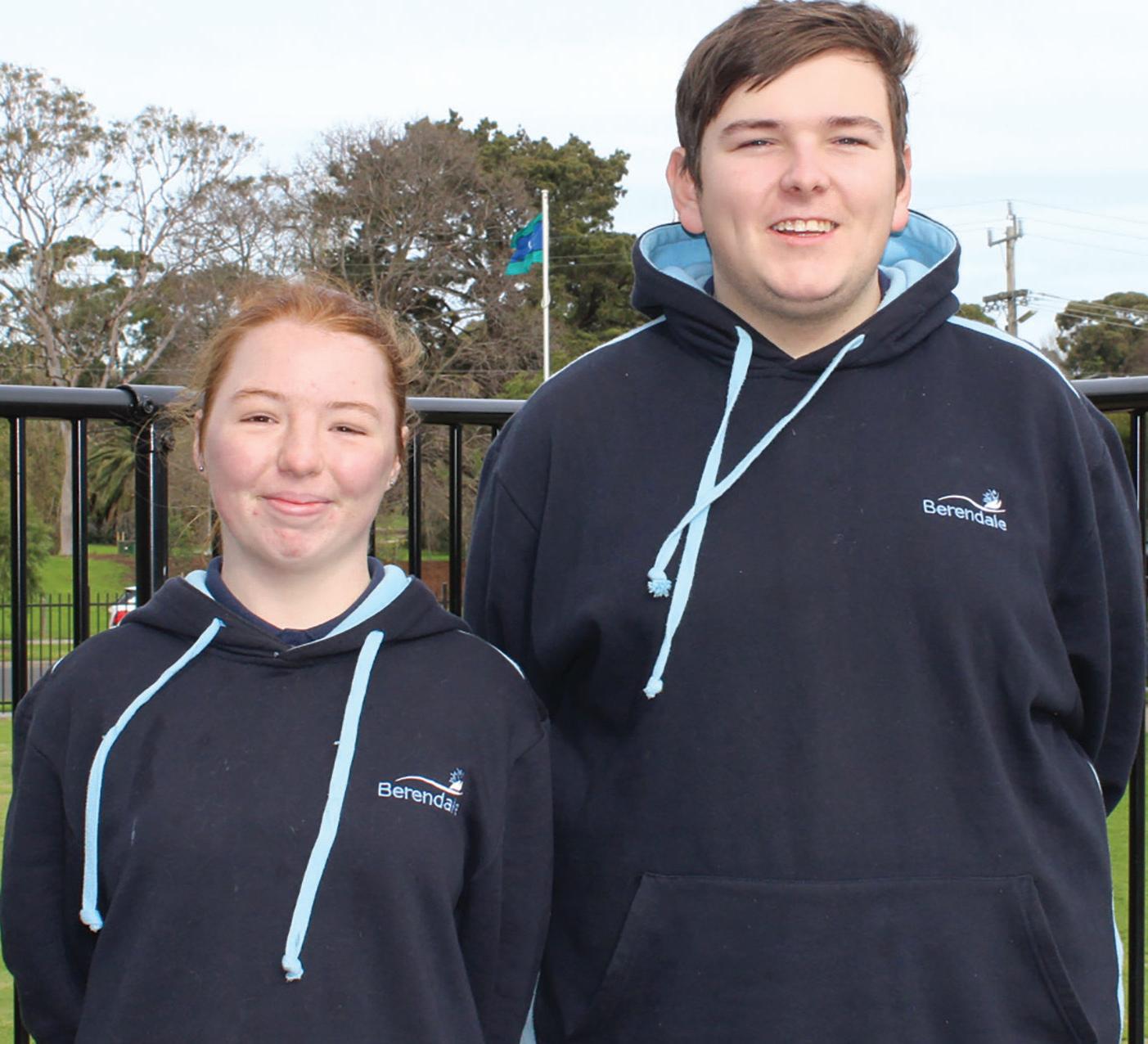
03 9555 6141
Junior Campus
2 Walsh Street, Ormond, Victoria 3204
Katandra.berendale.walsh@education.vic.gov.au
03 9578 6991
Links
facebook.com/katandraberendaleschool

berendale.vic.edu.au

12606887-FC33-23
Out and and about


Marnebek School is a dual campus specialist school which provides opportunities and pathways for students with additional learning needs.
Our school vision is to create a stimulating and engaging environment that enables students to embrace learning and achieve their full potential. We do this by building students’ social, emotional and physical wellbeing, empowering them to become active and valued members of their community.
Students are at the centre of our school. They develop a broad range of leadership skills and confidence to become active in their learning. Our school values – Resilience, Respect and Responsibility – underpin the school vision.


espect and R p Re e, R ct Respo ecct a ncee, onn.
n onsibilitnsibility

u to contact th o c e you yo the sc ctcontac me y ow ntact details be ac r con co ct belo our ou








chool to cho
We encourage and welcome you to contact the school to arrange a tour. Please see our contact details below.
Email:
















































































marnebek.sch.cranbourne @education.vic.gov.au

www.marnebek.vic.edu.au





Telephone: (03) 5996 3858

Address: New Holland Drive Campus, 9 New Holland Drive, Cranbourne East, VIC 3977
Corrigans Road Campus, 9 Corrigans Road, Cranbourne East, VIC 3977

12610436-AV33-23 RESILIENCE | RESPECT | RESPONSIBILITY





Choices 32 12623591-JC33-23
Monash Special Developmental School strives to be a centre of excellence. We provide exemplary individualised programs to students with a diagnosed intellectual disability and/or multiple disabilities including Autism Spectrum Disorder for students aged 2.8 to 18 years old.
Monash SDS is a leader and innovator in educational services for students with intellectual disabilities and/or multiple disabilities including ASD. As a school we have grown and evolved to meet the everchanging needs and challenges of our students. Experienced special education teachers deliver high quality programs to promote learning and development in the key areas of communication, social skills, personal independence and academic instruction. We work with each family to identify the needs of each child and integrate these goals into individually tailored learning programs that are linked to the Victorian Curriculum.
Three sub schools cater for the unique needs of our students at the different stages of schooling and development. The Early Education Program is a centre-based program that specialises in child development for children aged 2.8 to 5 years who have been diagnosed with a severe delay or disability (including social, behavioural or developmental delays). Our programs are based on science and provide a comprehensive approach for preschool children and their families, incorporating naturalistic, structured and behavioural intervention strategies to promote engagement and learning.
Primary School offers an inclusive, collaborative and nurturing learning environment in which every child can be themselves. Our vision is to develop and foster the potential and uniqueness of each child. We do this by embracing each child’s differences and empowering our students through educational innovation. Small class sizes allow teachers to provide a personalised learning program to each child drawing on the internationally recognized, STAR (Applied Behaviour Analysis) Program, Structured Teaching Framework (TEACCH® Program) and School Wide-Positive Behaviour Support.
Secondary School provides students with modern educational and sporting programs in a new purpose-built resource intensive learning centre, with a STEM room, multimedia facility and commercial kitchen. We are accredited to provide Vocational Education and Training (VET) courses. VET provides students with the opportunity to develop workreadiness skills, potentially opening up further study or work opportunities post-school.
As a School Wide Positive Behaviour Support (SWPBS) gold accredited school, we work alongside external consultants in the field, providing evidence based interventions to students reducing behaviours of concern and increasing independence. We work closely with families to ensure a consistent approach across school and home.
Choices 33 12620462-JC33-23
Individualised behaviour support and intervention.
Programs implemented with the support and advice of consultant allied health professionals who are leaders in their field.
Small group classes with specialised teachers and experienced teacher assistants.
Evidence based intervention programs including Structured Teaching, ABA and School Wide Positive Behaviour Support.
A rich curriculum supplemented by art education, music education, physical education and a swimming program.
Montague School
MONTAGUE SCHOOL is a Special School for students aged 15-18 with mild intellectual disability. Families who enrol at Montague School do so knowing that their child is capable of great things, with the awareness that they would benefit from a different approach to their education. Students entering Montague School join a community of true peers, something which can be transformative to their learning experience and academic success. Our experienced and professional staff provide a safe, caring and inspiring learning environment in which all students can develop academically, socially and emotionally.
Since opening in 1886, Montague School has remained at the forefront of initiatives in the teaching of students with mild intellectual disability. We address the needs of young people who are prone to falling through the cracks of a traditional school setting. We provide a very structured, personal, planned approach to their education and prepare them for life beyond school. Our team includes teachers, teaching assistants, youth workers, counsellors, psychologists, special educators, as well as other allied health professionals. The principles that underpin our practice of teaching, knowledge and learning are designed to be enduring, challenging and connected. These principles are founded on strong, positive and supportive relationships.
Our students enjoy an extensive curriculum and are encouraged to participate in a full range of academic, artistic, sporting, community and leadership activities. Our vocational program prepares students for successful post-school transition through structured coursework, continuous work-related exposure, and a broad pastoral care curriculum focussed on enhancing student work ethic, behaviour, resilience, and academic results. We successfully mix classroom learning with real-world experience through supervised practicums and externships at offcampus facilities or with employers. This lets students apply what they learn in class to actual situations they might encounter once they begin a career.
Our Vision
Our vision is to provide a safe and nurturing environment in which students can enjoy learning, achieve their potential and develop the key skills they need to thrive as independent,
emotionally and socially confident young adults. We will achieve this through our mission of empowering the person. Simply put, this means that we build on existing strengths and create learning that allows our students to become informed, confident, independent adults.
Our Commitment
1. High expectations and a profound and welljustified belief that every child and young person can learn and achieve.
2. Refined skill in finding and applying the most effective approaches to communicating with, relating to, and teaching young people with special needs and challenges.
3. Exceptional expertise in assessing progress and recognising the smallest steps as well as large jumps in learning, and in using assessment to guide teaching directly.
4. Highly effective and indispensable teamwork across the school workforce in which varied skills combine and best practice is readily shared.
5. Strong partnerships with other professionals and providers, not least in reintegration and transition.
6. The provision of ambitious and exciting opportunities through well-designed and individualised curriculum arrangements.
7. Respect for individual young people and their parents, with the power to bring cheer and selfbelief to students, and relief, optimism and support to parents.
8. Unremittingly committed, inspirational and forward-looking leadership which believes that every professional challenge has a solution.
Choices 34
Highly effective and indispensable teamwork across the school workforce in which varied skills combine and best practice is readily shared.

















Choices 35 Montague School is a secondary school in South Melbourne that specialises in providing a unique and individualised learning program for students aged 15 to 18 with mild intellectual disability. At Montague school our vision is to provide a safe and nurturing environment in which students can enjoy learning, achieve their potential, and develop the key skills they need to thrive as independent, emotionally, and socially confident young adults. Montague School 100 Montague Street, South Melbourne VIC 3205 idi ning, need tothrive UNIQUE AND INDIVIDUALISED LEARNING (03) 9690 3535 montague.ec@education.vic.gov.au STRENGTH | KNOWLEDGE | BALANCE | PERSISTENCE 12608849-HC33-23
Deaf Education Centre Mount Erin College
WELCOME to the Deaf Education Centre at Mount Erin College. We are the only Government Secondary Deaf Education setting in the South East Victoria Region (SEVR). We provide specialised educational support for students with hearing loss.

Our centre delivers communication and technological support, including cochlear implants, a variety of hearing aids, Roger and Soundfield Systems.
Audiologist and Hearing Tech support is also provided onsite at the College twice a Term by Hearing Australia.
We provide in-class support for Deaf and Hard of Hearing students by prioritising English and core subjects. We work with teachers to provide students with timely, dynamic feedback, encouragement, guidance and clarification.
Our Diploma of Auslan qualified Education Support Staff provide 1:1 support in the classroom. Inclusion and access is, but not limited to: clarification for assessments/exams, note taking, captioning and transcripts, modification of resources to meet individual student needs. We also have withdrawal sessions to target specific learning needs identified for each Deaf and Hard of Hearing student.
Our centre is a welcoming and supportive educational environment that celebrates our
Auslan in 2024
■ All Year 7 students
■ LOTE option for Year 8
■ Year 9 Auslan elective
students’ successes. Students are supported to achieve success through Language Intervention classes and communication support including Auslan where appropriate.
We also participate in excursions such as Auslan interpreted professional theatre performances in the city like Mary Poppins, captioned cinema movie experiences and the Combined Secondary Deaf Sports Day is always a highlight of the year.
We support our DEC students with the transition from Primary to Secondary School and offer additional opportunities to connect with students and staff.
There may be financial assistance for funded Deaf Education students to access the DEC at Mount Erin and this can be discussed in more detail.
For further information, please contact the DEC team at Mount Erin College on 5971-6000.
Choices 36







Choices 37 12505224-HC31-21 Ph: 5971 6000 W: https://mounterin.vic.edu.au/ E: mount.erin.sc@education.vic.gov.au Mount Erin College, 43 Robinsons Rd, Frankston South VIC 3199 Providing a supportive and inclusive environment for Deaf/Hard of Hearing students for the South East Victoria Region.
Naranga School
NARANGA School caters for students with a mild intellectual disability aged 5 to 18. We provide an engaging and comprehensive curriculum that ensures students will achieve personal success in a structured, safe and supportive learning environment. Programs are innovative and accommodate the individual learning styles of each students. Goals are designed to be challenging whilst developing the skills required for becoming an independent and productive member of the community. Classroom teaching is grounded in explicit instruction and other highimpact teaching strategies.
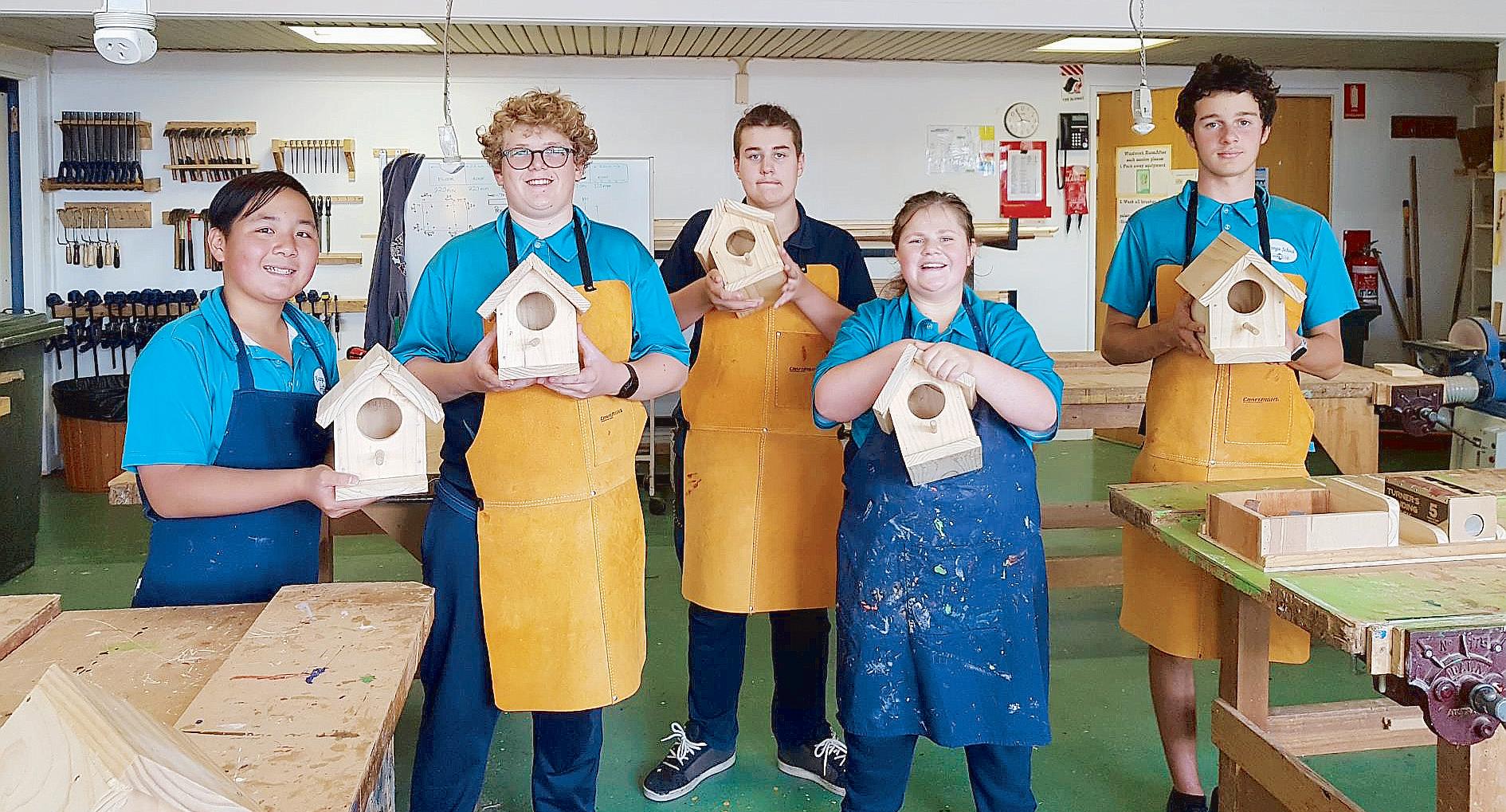
Naranga has a focus on positive attitude and behaviour, with School-Wide Positive Behaviour Support and Restorative Practices implemented across the school. A unique feature of Naranga is our house system which is closely linked to our SWPBS culture. Students participate in a range of special events in their cross-school mixed age houses which are named after our four valuesSafe, Respectful, Responsible, and Learner. Naranga offers opportunities for practical learning through a wide variety of hands-on learning activities. Students also have opportunities to participate in a range of structured activities during recess and lunch breaks to support social development. Interventions for students are carefully designed
by a multidisciplinary team which includes therapists.
Our curriculum is based on the Victorian Curriculum learning areas and capabilities with an additional focus on developing independent life skills. Additional learning programs include Respectful Relationships, Bike Education, Home Economics, Sustainability, Horticulture, Independent Travel, Music, Outdoor Education, Photography ,Woodwork and Digital Technology. Students are engaged in daily physical activity, building on their weekly Physical Education class. Senior students experience sports such as basketball, football, cricket and soccer in an interschool setting. There is a strong emphasis on Performing Arts with students involved in music, dance and drama culminating in an annual concert and awards night.
The Junior School educates students from age 5 to 12, and the Senior School is for students 13 and over. In their final two years of school, students undertake the Victorian Pathways Certificate (VPC) or the ASDAN learning program. There is a strong focus on learning for life, with careers planning and work experience opportunities available. All students graduating from Naranga are supported and guided when transitioning to post-school pathways.
Choices 38
• Individualised Education Plans based on the Victorian Curriculum
• Practical, hands-on approach to learning culture and expectations
• Extra-curricular activities: Running club, indoor games, silent discos
















• Therapeutic supports: speech and occupational therapy, psychology



• Focus on sustainability

Choices 39 N
2222
www.naranga.vic.edu.au 9788
12612405-AP33-23
Understanding autism
AUTISM is a neurodevelopmental disability that affects the way people communicate and interact with the world. Characteristics generally appear in early childhood and will be present, in some form, for life.
Around 1 in 100 Australians is autistic and 85% of the community has a personal connection with an autistic person.
Autism affects the way individuals interact with others and how they experience the world around them. Every autistic person is different, which means that each person has unique strengths and challenges.
Autistic people may have:
■ challenges with communicating and interacting with others
■ repetitive and different behaviours, moving their bodies in different ways
■ strong interest in one topic or subject
■ unusual reactions to what they see, hear, smell, touch or taste
■ preferences for routines and dislike change. There is no known cause of autism. Much research is being done to try to find out more. Right now, evidence suggests that autism results from changes to the development and growth of the brain. These changes may be caused by a combination of factors, including genetics.
Autism is part of who a person is. It isn’t caused by parenting or social circumstances. Autism is also not caused by vaccination or other medical treatment.
Could it be autism?
As a parent you may be worried about your child’s development. You, or someone close to you, may have noticed that your child’s speech is delayed, or that they seem to be ‘aloof’ or ‘detached’ from you. There can be many reasons for a child’s development being delayed. One of the possibilities could be autism.
If a child with a developmental delay is suspected of being autistic, an assessment is usually made by a team of professionals experienced in the field.
The team will often be made up of a
paediatrician (or child and adolescent psychiatrist), a psychologist and a speech pathologist. Between them they will carry out a series of different assessments over several appointments.
Once the assessment has been completed, the team will decide if your child meets the criteria for a diagnosis of Autism Spectrum Disorder and a diagnosis will be made.
Diagnosis is usually made from the age of about 18 months onwards. Sometimes a provisional diagnosis is made when the child is very young and is reassessed at a later date.
There are a number of government-funded teams that specialise in the assessment and diagnosis of autism. Parents can contact these teams directly, but you may need a referral from your GP or paediatrician.
There are also private practitioners and teams who conduct assessments on a fee-paying basis.
After a child’s diagnosis
Once a diagnosis is made, the parents will receive a copy of the assessment report. This report is used to plan a program for the child in consultation with parents and service providers.
The assessment report is also used by government agencies, schools, respite care and other services to determine eligibility for funding or other support.
Receiving a diagnosis of Autism
For some people, receiving an autism diagnosis can be an emotional event.
Choices 40
It is important to note that a diagnosis can inform developmental, educational and social outcomes at any age, no matter when the individual is diagnosed.
It may come as a relief, after a long period of not being sure why they, or their child, are different from others their own age or in their peer groups.
What is the future?
Autism is a lifelong condition. There are many things that autistic individuals and families can do to learn more about autism, connect with people who have shared experiences, and get support to live healthy, happy and fulfilling lives.
There are many support groups around Victoria and Australia, set up by people who do a wonderful job of providing safe, supportive spaces. Find out more about peer support groups here.
There are therapies and interventions that can help autistic people develop their social interaction and communication skills. With the right help and support, great outcomes can be achieved.

Sharing a diagnosis
When you’re ready to share an autism diagnosis with your family and friends, it can be difficult to know where to start. You may wonder how much you should share with people, and if you even have to tell anyone at all! These are common questions, and the answer is the same: there is no
one way to talk about your autism diagnosis - you just need to do what’s right for you.
To help you to determine how and when to share a diagnosis, you can find information sheets on Sharing the Diagnosis and Sharing the Diagnosis with the School on the Resources page of amaze.org.au site.
It is important to remember that a diagnosis does not change who your child is.
A diagnosis can be useful, however, to help inform families, professionals, child care workers, teachers and other people involved in the child’s care or learning about what strategies, interventions, or supports have been shown to be effective with other children with similar difficulties.
It is important to note that a diagnosis can inform developmental, educational and social outcomes at any age, no matter when the individual is diagnosed
Source: https://www.amaze.org.au/ understand-autism/. Call 1300 308 699, or email info@ autismconnect.org.au for more information.
Nepean School
NEPEAN School is an innovative educational setting, offering individualised learning pathways for students with physical disabilities and complex health needs. We have strived to create and embed a culture of kindness at Nepean. We have 3 very simple school rules that help us all to focus on sustaining and nurturing a caring school environment:
■ Kindness to Ourselves
■ Kindness to One Another
■ Kindness to Our Environment
Our teachers and therapists work collaboratively in a transdisciplinary teaming model to deliver quality learning programs. Students are supported in their learning through three hours of Physiotherapy, three hours of Occupational Therapy, three hours of Speech Therapy and one hour of Music Therapy every week.
We provide comprehensive programs for students at all stages of learning. Individual Learning Plans (ILPs) cover the breadth of the Victorian Curriculum and include: English, Mathematics, Personal and Social Learning,
Digital Technologies, Health and Physical Education (including Aquatics in our onsite hydrotherapy pool), The Arts, Play and Leisure, Science, Geography, History, Civics and Citizenship, Life & Community Skills. ILPs and learning activities are designed, implemented and evaluated by the transdisciplinary team in collaboration with families and carers.
Our school has a strong commitment to developing the literacy and communication skills of ALL students who have opportunities to read and write every day. Staff are proficient in using a wide range of high and low tech Augmentative and Alternative Communication (AAC) systems.
We offer parent training and support in using the student’s AAC system, empowering students to be able to say whatever they want to say, to whoever they want to say it to, whenever they want to say it!

Choices 42
We have strived to create and embed a culture of kindness at Nepean.














Choices 43 An innovative educational setting offering individualised learning pathways for students with physical disabilities and complex health needs. We welcome visitors at any time! Please call our principal Carolyn Gurrier-Jones on 9786 9111 to organise a tour. Together we Achieve the Extraordinary 12556131-SN33-22
Northern School for Autism
NORTHERN School for Autism is a Victorian State Government specialist school that exclusively addresses the educational needs of students with autism. Across the two campuses of NSA a dedicated team of 235 staff members provide autism specific educational programs, for 476 students from 5 to 18 years of age.
The Reservoir Campus provides state of the art facilities for the Early and Middle Years’ students. The Later Years’ students attend the refurbished Lalor Campus, which is located close to transport, community services and shopping precincts. This campus has been invested in by the Department of Education to receive new buildings, facilities and resources ready for 2025. In 2015 the school opened a satellite program at Norris Bank Primary School.

Northern School for Autism implements a teaching approach that builds on individual student’s strengths and skills. The educational programs accommodate the particular impairments associated with autism. Teaching and learning programs centre upon developing students’ interpersonal/personal skills, communication skills and executive functioning. Emphasis is placed on promoting social skills, assisting students develop their imagination and play skills, as well as supporting students learn to manage and self-regulate their emotions and
behaviour. Programs are designed to accommodate individual student’s needs and interests. Classroom teams are supported by occupational therapists and speech pathologists. Utilising proven teaching practice, an individual learning plan is developed for each child in consultation between parents and staff.
We pride ourselves on being a centre of excellence in the provision of programs for students with autism. I hope you enjoy learning all about our wonderful school.
Choices 44
Northern School for Autism implements a teaching approach that builds on individual student’s strengths and skills. The educational programs accommodate the particular impairments associated with autism.
Pamela Mathieson – Principal
RESERVOIR CAMPUS
16-18 Gertz Avenue, Reservoir, VIC 3073
Telephone: (03) 9462 5990
Campus email: northern.sch.autism@education.vic.gov.au



LALOR CAMPUS
2-4 Lyndon Street, Lalor, VIC 3075
Telephone: (03) 9464 3480
Campus email: northern.sch.lalor@education.vic.gov.au
Enrolment Enquiries
Email: mindy.fischer@education.vic.gov.au
Choices 45
12504479-DL34-21
Officer Specialist School provides educational programs for 5 – 18 year old students with a mild to severe intellectual disability.

Programs include:
• Small class sizes with Individual Learning Plans for each student.
• A transdisciplinary teaching approach comprising of: Teachers, Education Support Staff, Allied Health team – Speech Therapists, Occupational Therapists, Physiotherapists, Social Worker, two School Nurses and a Mental Health Practitioner.





• Specialist programs include Physical Education, Food Technology, Art, Performing Arts, STEM and Sustainability, Library, Community Engagement programs, Travel Education, Excursions and Pathway Programs all add value to the education of our students.

Our School Wide Positive Behaviour Program supports students to embrace the school values of: Respectful, Responsible, Safe and Friendly.
Families are an integral part of our partnership and we all work in collaboration with each other.
Choices 46 Safe • Respectful • Friendly • Responsible
12611338-JB33-23


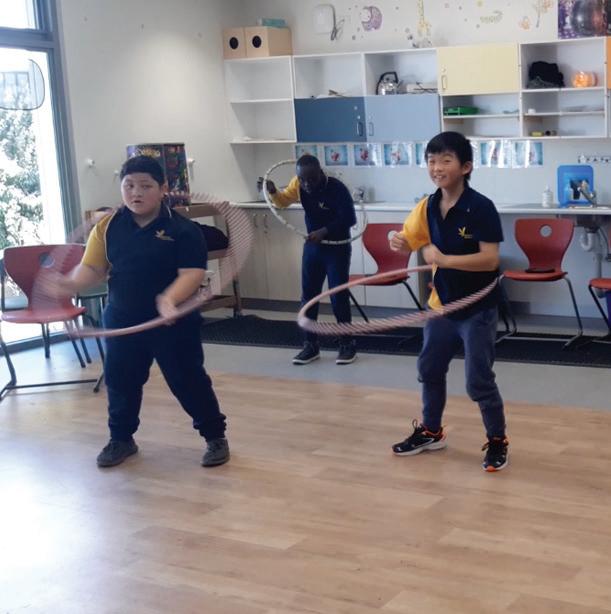


Choices 47 3 Parker Street, OFFICER VIC 3809 PO Box 475, OFFICER VIC 3809 03 5943 2800 ABN: 19 325 474 472 12553151-SG33-22
Rossbourne School
ROSSBOURNE School is an independent, coeducational, non-denominational secondary school for students identified as neurodiverse. It is a unique school providing a learning environment for students in the middle. Cognitively too advanced for a traditional special school but not able to thrive in a mainstream school. The wellbeing of our students is our priority and our educational programs have been designed to specifically support students who have experienced difficulties finding connections and success, both socially and academically, in other schools.
Our students come to us with a range of learning challenges and Rossbourne is experienced in delivering curricular to suit the individual needs of each student. Learning programs are tailored around the strengths and capacities of our students, implemented and monitored by highly trained staff, who form a partnership with parents to provide for the best possible learning outcomes.
Rossbourne takes great care in preparing students to become socially adept, promoting personal commitment and collaborative learning, leading students to experience a great sense of belonging and connection - with the school, their peers and members of staff. Each student is given the opportunity to forge a pathway of independence and personal
development along their Rossbourne journey.
We believe strongly in a student-centred approach that embraces diversity and connection so all feel a sense of genuine belonging. Rossbourne makes personalised learning a priority, creating a culture and environment where our students feel empowered as learners, able to determine the pace of their learning while focusing and capitalising on their strengths, as they make decisions about their learning pathways.
The best way to judge if Rossbourne will offer the care and educational programs that will help your child to become a socially engaged effective learner, is to see it in action. We invite you to visit us and discover for yourself the possibilities Rossbourne School can offer.

Choices 48
Each student is given the opportunity to forge a pathway of independence and personal development along their Rossbourne journey.







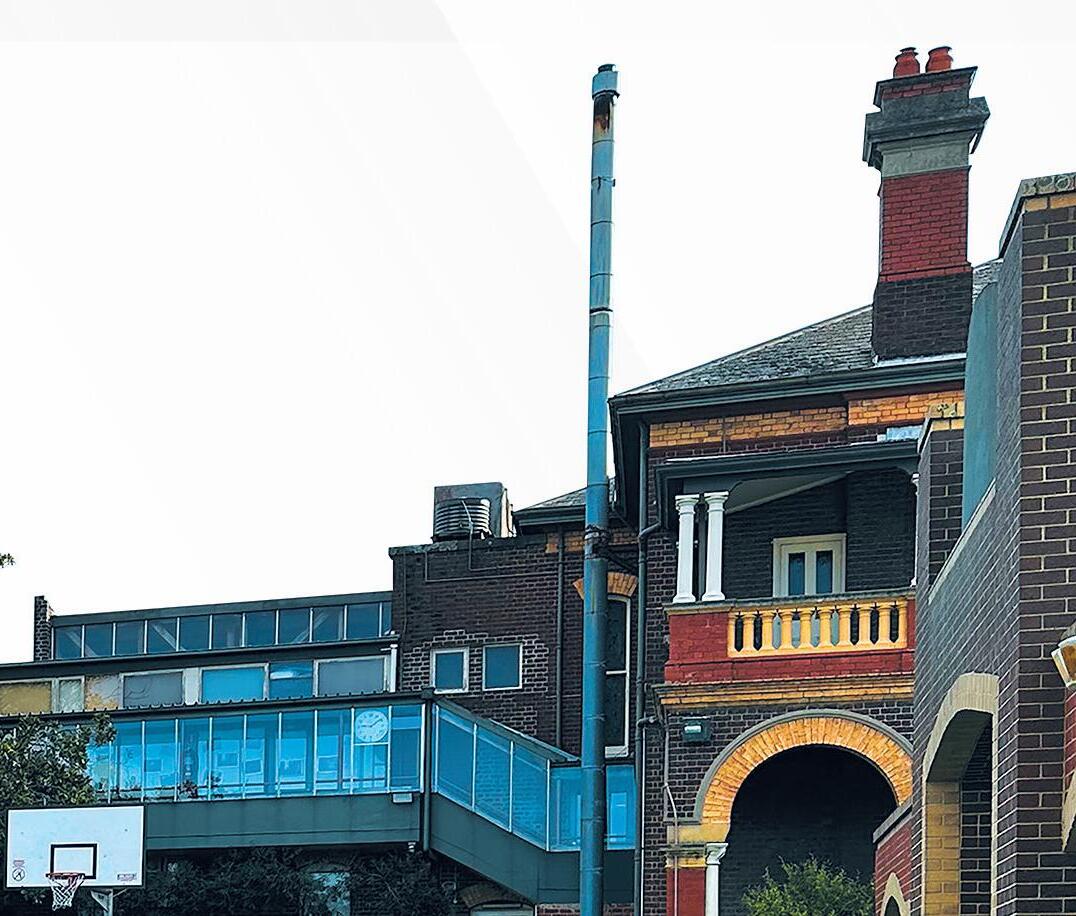

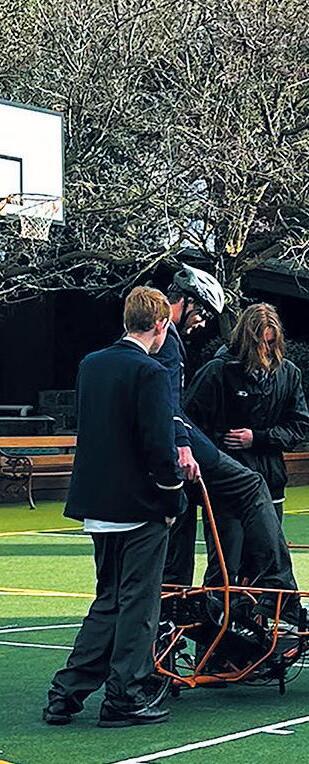







Choices ho Cho C Chhoicice iceces 4 9 LEADERS IN NEURO DIVERSE EDUCATION • Focused on the individual • Fostering independence and personal development • Developing life ready citizens 1261 1262617742 774 774 -HC3 -H 33-23 23 -23 3-2-23 03 9819 4611 www.rossbourne.vic.edu.au 131 Power Street HAWTHORN VIC 3121



























































Choices 50 For further information regarding our range of education guides and to provide us with your questions please contact: Katrina Mihai on katrina.mihai@starnewsgroup.com.au or 03 5945 0693 Victoria School Guides Highly ranked on Google a useful resource tool for parents. choices Issue 18 • 2022 choices Special Schools Guide pages 7 - 59 Products & Services pages 2, 3, 5, 6, 60 - 77 & back cover Schools for the hearing impaired and those offering deaf facilities pages 22 & 23, 38 & 39, 50 & 51, 56 & 57. Photo provided with the compliments of MECWA Care - For further information refer to pages 2, 3, 70 & 71. af faciliti Care For further victoriaschoolguides.starcommunity.com.au/choices/ Check out the digital edition for the 2022 edition of this guide now available on our website. 12559593-JW33-22




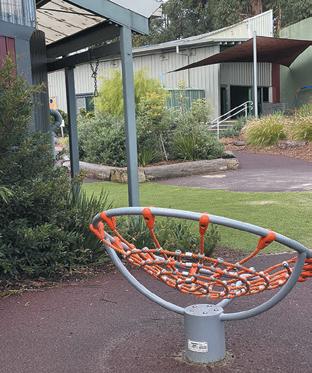
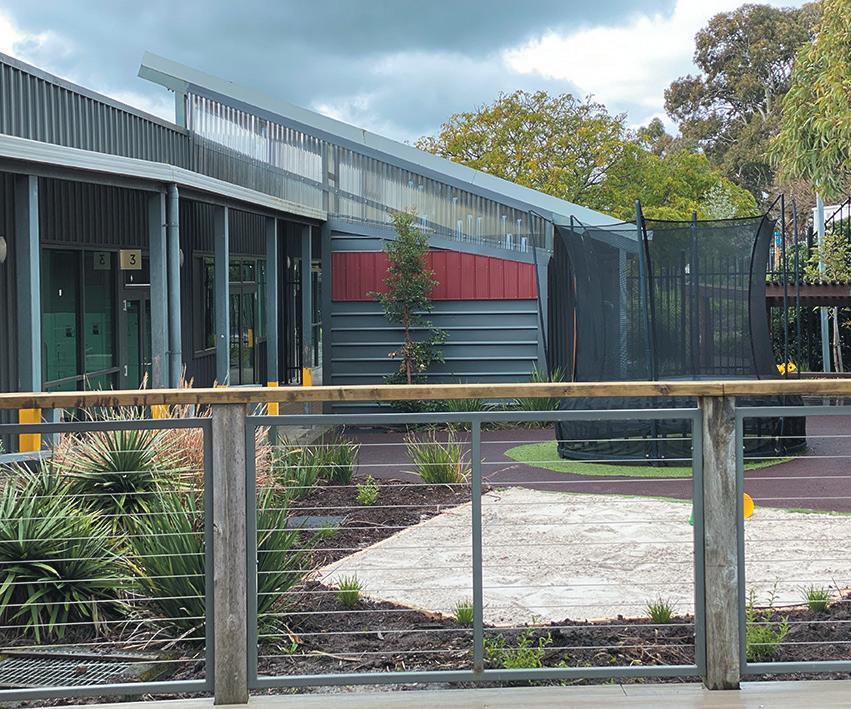



Choices 51
Gippsland Specialist School foster the involvement of the wider school community in its programs and activities so students become empowered members of their communities.” South Gippsland Specialist School South Gippsland Specialist School 13 Horn Street, Leongatha P: 5662 4496 Email: south.gippsland.ss@education.vic.gov.au Purpose built with fantastic resources for teaching and learning Hydrotherapy pool | Multi purpose hall Extensive fruit & vegetable gardens | Cafè style kitchen 12616032-FC33-23
South
Canine Comprehension
RETURNING to onsite learning, schools continue to have a huge task of managing students’ educational outcomes and balancing mental health after the social deprivation and uncertainty that COVID 19 brought to their families. Schools are looking for new ways to support children who are struggling with disconnection, anxiety, depression and loneliness. Lockdowns may be over yet the challenges continue.
Canine Comprehension offers a unique approach to such challenges. Their dog-assisted therapy programs are delivered to support mental health and wellbeing. A facilitator and their happy, furry friend run sessions which explore strategies to improve organisation, better listening, team building and interpersonal skills.
CEO and Founder of Canine Comprehension, Sarah Macdonald says “We need to focus on facilitating emotional growth, confidence and healthy social responsiveness. As a society, we need to prepare our young people for the challenges they will face both inside and outside of the classroom.” This is where Canine Comprehension’s unique approach has been so successful in schools and homes throughout Victoria. “The ability dogs have to positively engage people is well documented. These sessions have the ability to improve behavioural
responses, increase emotional wellbeing, ease anxiety and generally get students more excited about their education.”
The good news is programs run by Canine Comprehension therapy dogs are now funded by the Victorian Government. An investment of $217.8 million over four years to support student mental health and wellbeing, which all government schools can access.
“Our Therapy Dogs are very important coworkers whom we could not do without. They are happy to visit their students’ and it’s wonderful to watch the kids develop confidence as they engage with them. All the dogs love the attention and can’t wait to start their working day!”

Choices 52
We need to focus on facilitating emotional growth, confidence and healthy social responsiveness.
Curriculum: to


















Choices 53
programs: • Sport • Art • Music • Kitchen Garden Program • Swimming • Duke of Edinburgh • Basketball • Bowling • Camps • Bike Education • Interschool Sport • Riding for the Disabled • Work Prep and External Work Experience (16+)
learning for
age.
Specialist
and dynamic centre of
of
school-age children with a global
Pathways Program (16+)
•
Sandown Road, Springvale Vic 3171
Jackie Lowther—Principal | Ph: 9546 7666 springvale.park.sds@edumail.vic.gov.au | www.springvaleparksds.vic.edu.au
Support Program 13-15
Contact:
12569646-KG33-23
Best Buddies






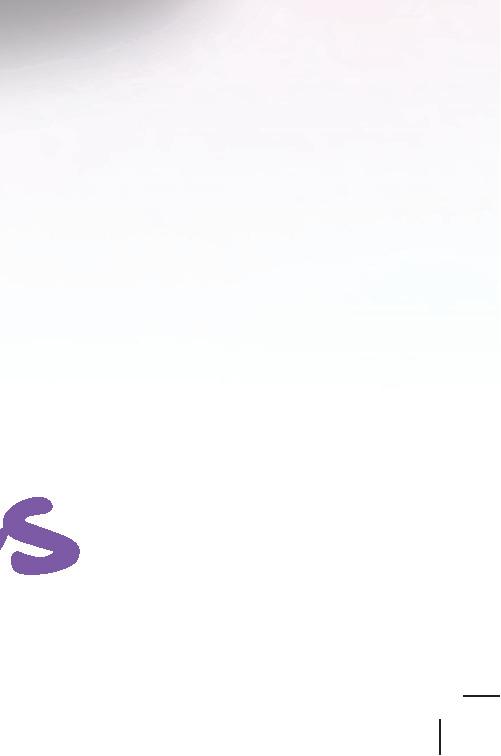




















































































































































































































































































































































































































































































































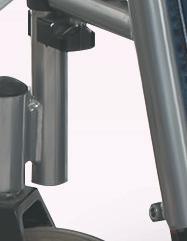




















































































































































































































































































































































































































































































































































































































































































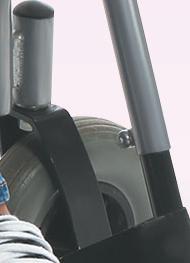











































































































































Choices 55 12611232-AV33-23
VERMONT SOUTH SPECIAL SCHOOL
School Profile
Vermont South Special School is located in the eastern suburbs of Melbourne.
We are a school that caters to primary aged children with an intellectual disability (Full Scale IQ between 50 - 70). We currently have approximately 150 students enrolled. The school is divided into four sections, Foundation, Junior (Year 1 & 2), Middle (Year 3 & 4) and Senior (Year 5 & 6).
each student. Our objective is to stimulate students to learn in a vibrant, nurturing, educational environment, which provides for individual needs, whilst supporting the whole school community in a climate of mutual respect and trust.

How our students learn
At Vermont South Special School, we have high expectations for all students. We follow the Victorian Curriculum and use an explicit teaching model, where students are guided through the learning process. We provide clear learning intentions about the purpose for learning new concepts, followed by explicit modelling, supported practice and specific feedback. Students work in small groups to allow for targeted teaching that caters for their individual needs. At VSSS we take every opportunity to celebrate and foster a love of learning.


Key Features:
• Small class sizes to ensure adequate support for all students.
Our Vision
It is our mission to provide students with the best possible foundation in life through a well-rounded education. Our core values are learning, respect, responsibility, and resilience. We are intent on engaging students in their learning through providing highly qualified teaching staff and proactive leadership. We are proud of the high expectations we have for the success of
• Highly skilled teachers with special education qualifications.
• A dedicated teacher assistant in every classroom.
• Specialist subjects including Performing Arts, Visual Arts, Physical Education and Healthy Kitchen.
• Onsite therapy including Speech Therapy, Occupational Therapy and Physiotherapy.
• Camps and excursions program.
Choices 56
12560365-HC33-22

Choices 57 For more information or to book a school tour please contact the school on: (03) 9802 8199 22-30 Livingstone Rd Vermont South, VIC 3133 vermont.south.ss@education.vic.gov.au www.vermont-south-ss.vic.edu.au 12519147-HC33-22
Yarra Valley Grammar
FOR 50 years Yarra Valley Grammar has been offering a mainstream schooling opportunity to young people who are deaf or hard of hearing.
The Ringwood school’s Hearing Unit was established in 1972 when the parents of four students banded together to establish the program, becoming trailblazers in this new approach.
Head of Hearing Unit Rachel Wilson said what began as the only dedicated Victorian teaching of the deaf facility, is now one of 25 across the state, providing the best technology and support for students.
With 35 students from kindergarten to secondary school, Ms Wilson said the program is structured to cater to each age group specifically to ensure the student receives the best care possible.
“With our youngest children we try to get them to put their hearing aids on at a young age, to build on those early self-advocacy skills,” she said.
“As the Hearing Unit students move into primary school, we are building their skills to become independent users of their devices and knowing what an ideal listening environment looks like for them.”
In those early stages of schooling Ms Wilson mentioned that students from the Hearing Unit, often will not undertake a language, rather they will use that time to work with Teachers of the
Deaf on their individualised goals to develop their literacy, language and vocabulary development.
Our ultimate aim is that we give students equal access to the curriculum as their peers and provide an environment in which they can achieve their personal best.
By years 10, 11 and 12, Ms Wilson said the aim is for the students to have well developed selfadvocacy skills. This is whereby students ask for what they require to help them learn best to set them up for success for when they eventually leave the safety of school.
Technology, such as personal listening devices, captioned audio/visual material and soundfields, normalises deafness among all students.
“The students feel happy and connected at school. They have a strong sense of belonging as the Hearing Unit is embedded in the culture of the school, they are just like any other student,” Ms Wilson said.

“Students have a positive self-identity about who they are, making them feel comfortable about themselves and their hearing loss.”
“The other students are very caring and very inclusive. It is an environment that is not only supportive for the hearing unit students but it teaches empathy and understanding for the wider community as well.”
Choices 58


Choices 59 12554094-DL33-22
Choosing a special school
DECISIONS about the best primary schools for children with disability can seem daunting. Visiting schools you’re interested in and talking with principals about how schools can meet your child’s needs will help you find the right school for your child.
Decisions about primary schools for children with disability

Decisions about where your child goes to school are very personal and can be difficult. It’s common and normal to feel anxious about getting this decision right.
All families have a lot to think about when they’re choosing schools, including distance, finances and availability of before and after school care. When your child has a disability, you’re likely to have extra considerations - for example, accessibility or learning support.
It’s a good idea to start thinking about school options at least two years before your child is due to start school.
FIRST STEPS TO CHOOSING A PRIMARY SCHOOL
The first step is to find out about the primary school options near you.
You could talk to your child’s preschool teacher, professionals at your child’s early childhood intervention service, friends, and a disability advocacy service to get information and ideas.
If you already have another child at primary school, that school could be a good place to start as you’ll have already explored its benefits and have a relationship with the school.
VISITING PRIMARY SCHOOLS
Once you’ve made a list of schools you’re interested in, you can explore them in more detail.
School open days and tours will give you a general feel for a school. It can help to take a friend or a disability advocate with you, so you can both gather information and discuss it afterwards.
You’ll get some sense of whether the school is right for your child from the:
■ welcome you and your child get
■ principal’s approach to supporting children with additional needs
■ principal’s responses to your questions
■ school’s approach to education, diversity and inclusion
■ experiences of other families
■ extent to which inclusion is a focus in school policy documents.
Ref: http://raisingchildren.net.au/articles/ disability_choosing_schools.html
Picture: Currajong School
Choices 60
It’s a good idea to start thinking about school options at least two years before your child is due to start school.”
Products & Services




12505435-AV31-21
Alkira
FOR almost 70 years Alkira has been at the forefront of supporting people with an intellectual disability and their families. We offer a wide range of services to support adults as they journey through life.
We have 3 different services for school leaverswe understand that each student has a different journey when transitioning from High School to the Community depending on their life and/or employment goals. All 3 services are easy to get to by public transport as they are close to the Box Hill train station, tram lines and buses.
Further Studies
Alkira is in partnership with Box Hill Institute (RTO Code: 4687) and the following TAFE courses are on offer through the Momentum Program: Certificate I in Transition Education, Certificate I in Work Education and Certificate II in Work Education (Hospitality Stream).
Momentum is a five-day Program and is based at the Box Hill Institute’s Nelson Road Campus. The Momentum Program is a blend of TAFE accredited units and Alkira non-accredited programs. The accredited courses are facilitated by Box Hill Institute’s staff and supported by Alkira staff. During the Alkira non-accredited programs, Alkira staff facilitate the programs.
The focus is on academics, enhancing communication and budgeting skills, socialisation, advocacy, building independence and confidence, improving health and fitness and gaining independent living skills.
Momentum is outcome driven with graduates experiencing work placement and volunteering opportunities, management of their money, safely utilising public transport, developing independence within the community and gaining skills for employment.

We see students mature throughout the course of the programs as they gain a better understanding of what they want to do in the future.
Employment Support
Our School Leavers Employment Support service builds confidence to enable participants to reach their employment goals. This program is 3 days a week from our Thurston Street site and aims to prepare young adults for entry into a workplace. Participants go on industry visits to learn about different types of jobs so they can start thinking
about what career path they are interested in. One day a week participants gain real retail experience with training at the Alkira Shop, an on-site Op Shop where they will deal with customers, learn money handling, practice visual merchandising and find out what it takes to work in a team. This service also focuses on developing life and community skills such as utilising public transport, time management and communication skills.
Daily programs for skill building
For students whose main focus is not employment we recommend our Connections group-based programs where participants can create, socialise, exercise and learn life skills. Connections activities can be centre-based or out in the community, participants interests and skill focus areas determine a weekly individual timetable of programs. Participants attend Connections programs any number of days during the week and we also have 1:1 support options available.
To learn more or book a tour:
■ Visit our website at www.alkira.org.au
■ Contact via phone: (03) 9890 1365
■ Or Email: info@alkira.org.au
Choices 62






Choices 63 12616039-AA33-23



Choices 64 12623486-ET33-23



Choices 65 12614703-ET33-23



12623485-JB33-23

Choices 67 12612504-JB33-23
Interact Australia
INTERACT Australia is committed to creating more inclusive and supportive communities. For over 25 years, we have been dedicated to connecting individuals with the tailored and flexible support they need. Our experienced, culturally sensitive team provide Individual Support Services (NDIS) and Disability Employment Services (DES), offering flexible options that are tailored to individual needs and future goals. By championing the choices of individuals, we work to build positive outcomes for the community.
Wyatt and Carlin’s accomplishments serve as a shining example of what can be accomplished when hard work and the right support are combined. Through dedication and guidance from Interact Australia’s business development consultants and Heckton Joinery’s apprenticeship program, these two have been able to reach their goals.

The success of Wyatt and Carlin is a testament to the power of support and mentorship, and the potential for success when dedication and determination are present. It showcases that with enough hard work and the right help, anyone can realise their dreams.
Interact Australia is proud to be part of IntoWork Australia, a national group of businesses, opening doors to apprenticeships, training, employment and support. We are committed to connecting individuals with the support they need to create their future.
If you have funding under NDIS or TAC, we provide a range of individualised support services for people with cognitive, psychosocial and physical disabilities including;
■ Assistance with Daily Living
■ Personal care supports
■ Participation in community, social and recreational activities
■ Development of daily living skills
■ Assistance with independent travel and transport
■ Assistance to go on holiday
■ School Leaver Employment Supports (SLES)
If you would like support in finding fulfilling employment that values your skills and contribution, our Disability Employment Services
(DES) is for you. Support includes:
■ Career Planning and Preparation
■ Skills Development and Goal Setting
■ Skills and Abilities Identification
■ Resume and Cover Letter advice
■ Interview skills coaching
■ Access to training and confidence building
■ Job Search Support
■ Introduction to Employers, Work Experience Placements, and Apprenticeship Centres, Labour Hire Organisations, and Industry Groups
In Work Support includes on the job training, special equipment for the workplace and advice on workplace issues.
If you are living with a disability and require individualised supports or disability employment services, contact Interact Australia on 1300 FUTURE (388 873) or visit our website interact.com.au.
Choices 68
It showcases that with enough hard work and the right help, anyone can realise their dreams.






Choices 69 12613104-SM33-23
MELBOURNE YOUTH CHORALE


Melbourne Youth Chorale is a financially accessible choir that enriches and empowers children and young people through quality music education in an inclusive, growth-oriented community.
Flying Free…
“So life's a song that I must sing, a gift of love I must share And when I see the joy it brings, my spirits soar through the air
Like that bird up in the sky, life has taught me how to fly
For now I know what I can be and now my heart is flying free”
- Don Besig
MYC’s Flying Free Choir
gives wings to primary-aged children with additional needs.

• Fun and engaging
• Games, self-regulation exercises, music and singing


• Enabling children to achieve individual goals












• Exploring communication and socialisation skills
• Directed by a registered speech pathologist

“I feel really lucky to be the Flying Free choir’s Director. I am a lover of bright colors, singing, music, spontaneity, and yoga. Cheese should definitely be added to this list! I have a bunch of daughters, 2 dogs, and a cat. I’m a speech therapist who loves working with preschool and school-aged kids.”
 Indra
Indra
Choices 70
-
12620487-RR33-32























Choices 71 Rehearsing at Hampton Park Secondary College E Block, Fordholm Road WEDNESDAY 4.30-5.15pm Contact Kerry at manager.myc@gmail.com melbourneyouthchorale.com.au | 1800 658 862 Founded in 1986 “Because everyone deserves the gift of music” Children aged 6-12 verbal or non-verbal at rk ad Y y at c@gmail.com dhiffi” ren a verba -verb ilcom aged l or al Flying Free Free Choir for Children with Additional Needs MELBOURNE YOUTH CHORALE 12619107-RR33-23
Choices 72 • Disability Support Programs • Home Care Services • Support Co-ordination • Personal Care • Meal Preparation • Property Maintenance • Respite Care • Transport Ways we support you: mecwacare empowers people to live their best life. We have more than 64 years experience in supporting Victorians living with disabilities, and their families. Our values-based care helps people with a disability to live independently in their own home. Supporting the way you live Proudly a not-for-profit, non-denominational charitable organisation Freecall 1800 163 292 • mecwacare.org.au Find us on 12623974-AV33-23






Choices 73
12621058-AV33-23
best life!
OC Connections
Support options for school leavers with a disability
AT OC Connections, we believe in empowering individuals with disabilities to thrive, achieve their goals, and lead fulfilling lives. We have a range of support options for school leavers with disability, to assist with the transition from school to adulthood. The type of supports you choose will depend on your goals, interests and support needs.

Learn life skills, pursue hobbies, and make friends.
Our educational and recreational day activities are offered Monday to Saturday, with evening support available. These activities can help you:
■ Express yourself creatively through art, craft, and dance
■ Develop new skills such as teamwork, organisational skills, and leadership
■ Strengthen numeracy and literacy
■ Improve your physical and mental health
■ Make new friends.
Develop work skills, gain experience, and become employed.
If getting a job is important to you, OC Connections Enterprises can assist you to:
■ Develop an employment plan
■ Identify goals, support needs and learning requirements
■ Learn from on-the-job training
■ Gain experience in different fields
■ Be placed in supported employment. Build independent living skills.
If you aspire to live independently, we offer a range of supports to help you achieve your lifestyle goals. This includes In-home Support, Supported Independent Living (SIL) and Specialist Disability Accommodation (SDA).
You can also get a taste for independent living by spending some time in our Short-Term Accommodation house. Here you’ll be able to learn new skills and participate in communitybased activities while having a short stay away from home.
Get the most out of your NDIS funding. Navigating the NDIS can often feel overwhelming. At OC Connections, we understand the challenges individuals may face, which is why our team of
professional Support Coordinators is here to assist you every step of the way.
With our expertise and vast network of service providers, we can help you find and connect with support services that are tailored to your specific needs.
With our holistic range of services and supports, and our focus on choice, opportunity, respect and equality, OC Connections is here to support individuals with disabilities to live their best lives.
Explore our options with OC Connections www.occonnections.org
■ P: 9569 0603
■ E: enquiries@occonnections.org
Choices 74
We have a range of support options for school leavers with disability, to assist with the transition from school to adulthood.”











Choices 75 12614687-MS33-23
SUNRISE2SUNRISE is a Registered NDIS provider that does things differently. We take pride in offering professional services traditionally only provided in larger corporate Disability Support organisations, but take a personalised approach. We tailor our services to each and every participant and all our services are in accordance with the Disability Act 2006, NDIS Act 2013 and Charter of Human Rights and Responsibilities act 2006. At Sunrise2Sunrise we’re about relationships – people always come first.
The Sunrise2Sunrise staff – or as we call them, our Life Changers – are selected for their experience in the Disability Support Industry. Our team are NDIS Rockstars, and support people’s lifestyles to help them find their strengths and abilities in a variety of settings to suit our participants needs. Whether it be through 1:1 community participation, in house supports or SIL/SDA accommodation. We strive for our participants at Sunrise2Sunrise to live their best life.
Sunrise2Sunrise is proud to be able to support participants who want to live independently. Participants who have SIL funding in their plan can access the SIL service. The planning for SIL support uses a person-centred approach to help participants reach their goals while facilitating their culture, lifestyle and circumstances. The
support is delivered respectfully in a participant’s home by Sunrise2Sunrise to advance skills for independent living. The customised support will ensure the participant is central to all decisionmaking to best suit their wants and needs. Participants can adapt their SIL support to align with their life at any stage.

Sunrise2Sunrise use the social support model to help extend a participant’s independence beyond their home, to allow them to enjoy experiences in their local area while building up their confidence to make meaningful lifestyle choices. As participants’ independence and confidence grow, their ties to the community grow too. From here, they will be able to try new experiences and further develop accomplished skills in existing leisure’s and hobbies. The participant can develop skills through community programs like gardening, volunteering, and public events.
The sky’s the limit!
Choices 76 Sunrise2Sunrise
We strive for our participants at Sunrise2Sunrise to live their best life.





Choices 77 Disability care when you need it, how you want it. Sunrise2Sunrise is a Registered NDIS provider doing things differently. We take a personalised approach and tailor our services to each participant. • Supported Independent Living • Community Participation • Support Coordination • In-home Support & Personal Care • Development of Life Skills • Domestic Assistance • Respite Services • Child, Youth and Family Services Phone: 03 9188 3499 Sunrise2Sunrise.com.au We love 12620542-AA33-23
Working it out



Choices 79 Ready to take your next steps toward paid employment or volunteering? We can help! Our small group programs give people the job skills they need for future employment in gardening and horticulture, retail or customer service and hospitality. We provide real life work experience and support from qualified staff to achieve your goals, and transition to employment when you are ready. Contact our friendly customer service team to find out more! Job skills with VMCH 1300 698 624 hello@vmch.com.au | vmch.com.au/disability 12619097-SM33-23
Windermere Family Services
Help
with your child’s development
DOES your child need support to reach key developmental milestones or have additional needs? “The earlier your child receives the right intervention or therapy to address their needs the better the outcomes,” says Sean Coleman, NDIS Manager at Windermere Child & Family Services.
Children may be eligible to access a range of individualised developmental supports under the National Disability Insurance Scheme (NDIS). “If your child is under 12 years of age and has a developmental delay or disability, they may be eligible to access Early Intervention and Therapy services under the NDIS,” says Sean.
When families access early intervention NDIS services from not for profit Windermere, they are assigned a keyworker as the one, easy point of contact to access support services. “A keyworker will draw from Windermere’s team of combined expertise and resources to provide you with the services and advice that you need. This removes the hassle of having to communicate with multiple therapists and coordinate separate appointments,” says Sean.
While a keyworker can help with the range of required supports, managing your NDIS funds can also be very complex and time consuming. An NDIS Plan Manager also known as a Financial Intermediary, can take the stress out of managing the financial aspects of an NDIS plan.
Plan Managers offer a range of services including organising payments to providers, sending monthly statements, ensuring you get value for money and taking care of NDIS financial reporting requirements.

“If you think having an NDIS plan manager would help you, all you have to do is to request for Plan Management services to be included in your NDIS plan during your planning meeting with the National Disability Insurance Agency,” says Sean.
Windermere is registered with the NDIA and provides a range of services such as early childhood education, homelessness support, NDIS supports and a range of early childhood early intervention services.
To find out more contact Windermere on 1300 946 337 or visit windermere.org.au
Choices 80



















12608715-AI33-23
School Listings

Choices 82
SCHOOLS Andale School ..........................................................................................5 Ascot Vale Heights School ................................................................7 Aurora School ...........................................................................................9 Bayside Special Developmental School ..................................11 Bulleen Heights School ..........................................................12 & 13 Coburg Special Developmental School ........................14 & 15 Dandenong Valley SDS ..........................................................16 & 17 Deaf Education Centre Mount Erin College ............36 & 37 Emerson School ...................................Front cover, 2, 3, 18 & 19 Glenallen School ..................................................................................21 Hume Valley School ................................................................22 & 23 Jacana School for Autism ....................................................24 & 25 Kamaruka .......................................................................................26 & 27 Katandra-Berendale School ................................................28 & 29 Marnebek School .................................................................................31 Monash Special Developmental School .....................32 & 33 Montague School ......................................................................34 & 35 Naranga School .........................................................................38 & 39 Nepean School ...........................................................................42 & 43 Northern School for Autism ...............................................44 & 45 Officer Specialist School ......................................................46 & 47 Rossbourne School ..................................................................48 & 49 South Gippsland Specialist School ...........................................51 Springvale Park Special Development School ..................53 Sunbury and Macedon Ranges Specialist School ............55 Vermont South Special School .........................................56 & 57 Yarra Valley Grammar ............................................................58 & 59 PRODUCT & SERVICE PROVIDERS Alkira ..............................................................................................62 & 63 Bayley House ..............................................................................64 & 65 Carers Victoria ...........................................................................66 & 67 Interact Australia .....................................................................68 & 69 Melbourne Youth Chorale ...................................................70 & 71 Mecwacare .....................................................................................72 & 73 OC Connections .........................................................................74 & 75 Sunrise2Sunrise .........................................................................76 & 77 Villa Maria Catholic Homes ..........................................................79 Windermere Family Services .................80, 81 & back cover
SPECIAL

Choices 83 Contents Alkira .................................................................................... 62 & 63 Andale School .............................................................................. 5 Ascot Vale Heights School .................................................. 7 Aurora School .............................................................................. 9 Bayley House .................................................................. 64 & 65 Bayside Special Developmental School .................... 11 Bulleen Heights School ............................................ 12 & 13 Canine Comprehension ...................................................... 52 Carers Victoria ............................................................... 66 & 67 Choosing a special school ................................................ 60 Coburg Special Developmental School ........ 14 & 15 Dandenong Valley SDS ............................................ 16 & 17 Deaf Education Centre Mount Erin College .................................................... 36 & 37 Emerson School ...................... Front cover, 2, 3, 18 & 19 Empowering Students with Down Syndrome .... 20 Glenallen School ...................................................................... 21 Hume Valley School .................................................. 22 & 23 Interact Australia ......................................................... 68 & 69 Jacana School for Autism ...................................... 24 & 25 Kamaruka .......................................................................... 26 & 27 Katandra-Berendale School .................................. 28 & 29 Marnebek School ..................................................................... 31 Mecwacare ......................................................................... 72 & 73 Melbourne Youth Chorale ...................................... 70 & 71 Monash Special Developmental School ...... 32 & 33 Montague School ......................................................... 34 & 35 Naranga School ............................................................ 38 & 39 Nepean School .............................................................. 42 & 43 Northern School for Autism ................................. 44 & 45 OC Connections ............................................................ 74 & 75 Officer Specialist School ....................................... 46 & 47 Products & Services ................................................................ 61 Rossbourne School ..................................................... 48 & 49 School Listings page ........................................................... 82 South Gippsland Specialist School ........................... 51 Springvale Park Special Developmental School ...........................................................53 Sunbury and Macedon Ranges Specialist School ....................................................................... 55 Sunrise2Sunrise ............................................................. 76 & 77 The Importance of Special Schools ...................... 4 & 6 Understanding Autism ............................................ 40 & 41 Vermont South Special School ............................ 56 & 57 Victoria School Guides website .................................... 50 Villa Maria Catholic Homes ............................................ 79 Windermere Family Services ... 80, 81 & back cover Yarra Valley Grammar................................................58 & 59 Next edition: August 2024 For bookings please contact: Themes Media on 5945 0666 or Email: katrina.mihai@starnewsgroup.com.au Published by Star News Group Pty Ltd ACN 005 848 108. Publisher/Managing Director, Paul Thomas. All material is copyright to Star News Group Pty Ltd. For our terms and conditions please visit www.starcommunity.com.au



















12608715-AI33-23


















































































































































































































































































































































































































































































































































































































































































































































































































































































































































 Indra
Indra

































































